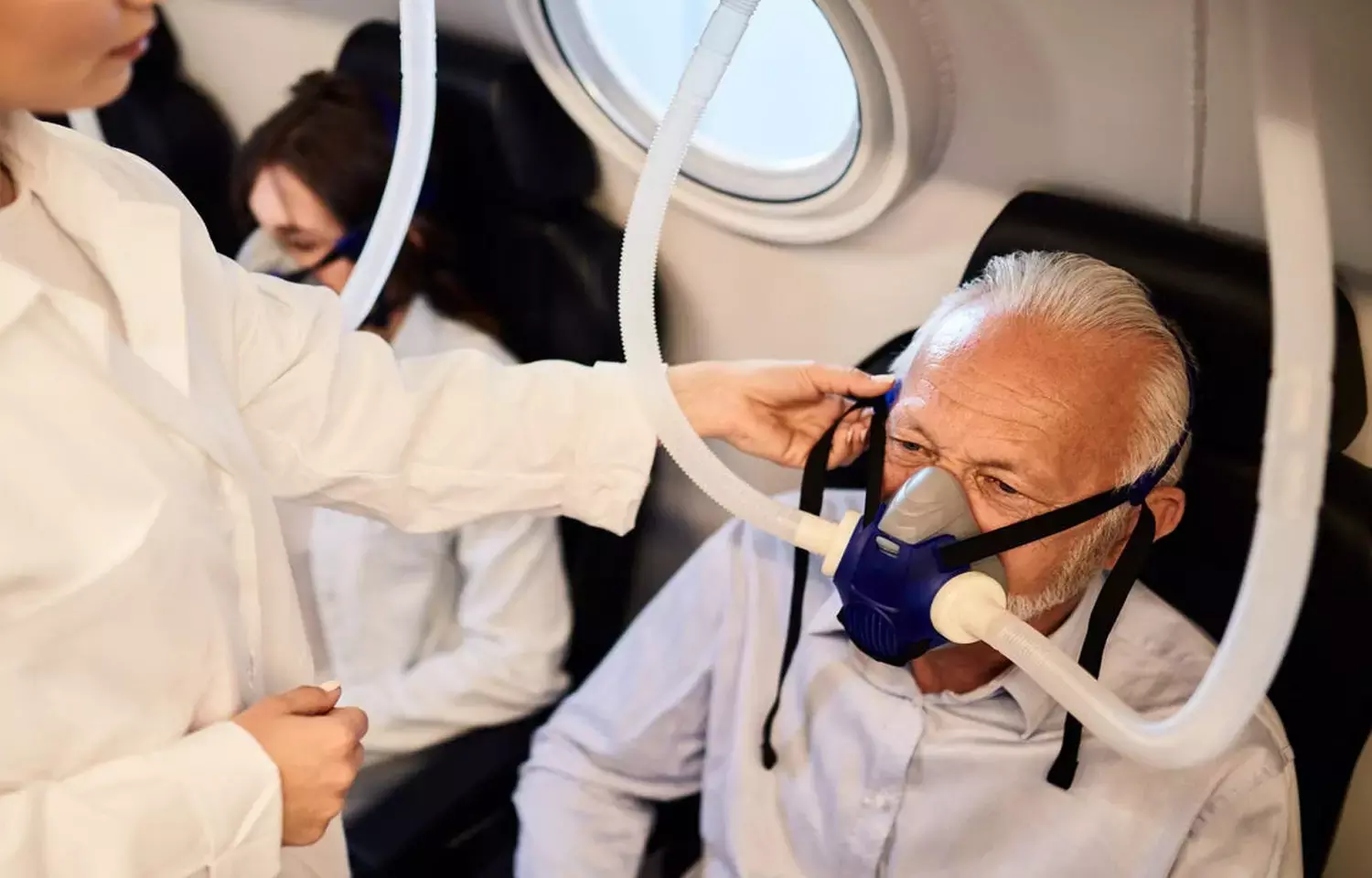- Home
- Medical news & Guidelines
- Anesthesiology
- Cardiology and CTVS
- Critical Care
- Dentistry
- Dermatology
- Diabetes and Endocrinology
- ENT
- Gastroenterology
- Medicine
- Nephrology
- Neurology
- Obstretics-Gynaecology
- Oncology
- Ophthalmology
- Orthopaedics
- Pediatrics-Neonatology
- Psychiatry
- Pulmonology
- Radiology
- Surgery
- Urology
- Laboratory Medicine
- Diet
- Nursing
- Paramedical
- Physiotherapy
- Health news
- Fact Check
- Bone Health Fact Check
- Brain Health Fact Check
- Cancer Related Fact Check
- Child Care Fact Check
- Dental and oral health fact check
- Diabetes and metabolic health fact check
- Diet and Nutrition Fact Check
- Eye and ENT Care Fact Check
- Fitness fact check
- Gut health fact check
- Heart health fact check
- Kidney health fact check
- Medical education fact check
- Men's health fact check
- Respiratory fact check
- Skin and hair care fact check
- Vaccine and Immunization fact check
- Women's health fact check
- AYUSH
- State News
- Andaman and Nicobar Islands
- Andhra Pradesh
- Arunachal Pradesh
- Assam
- Bihar
- Chandigarh
- Chattisgarh
- Dadra and Nagar Haveli
- Daman and Diu
- Delhi
- Goa
- Gujarat
- Haryana
- Himachal Pradesh
- Jammu & Kashmir
- Jharkhand
- Karnataka
- Kerala
- Ladakh
- Lakshadweep
- Madhya Pradesh
- Maharashtra
- Manipur
- Meghalaya
- Mizoram
- Nagaland
- Odisha
- Puducherry
- Punjab
- Rajasthan
- Sikkim
- Tamil Nadu
- Telangana
- Tripura
- Uttar Pradesh
- Uttrakhand
- West Bengal
- Medical Education
- Industry
Conservative oxygen therapy does not improve prognosis of critically ill patients: Study

Conservative oxygen strategy is recommended in acute illness while its benefit in ICU patients remains controversial.
Conservative oxygen therapy strategy did not improve the prognosis of the overall ICU patients, reports a recent study published in the Journal of Intensive Care. The subgroup of ICU patients with mild to moderate hypoxemia might obtain prognosis benefit from such a strategy without affecting other critical clinical results, explained Xiao-Li Chen and colleagues from the Department of Critical Care Medicine, the First Affiliated Hospital of Fujian Medical University, Fuzhou, China.
The researchers sought to conduct a systematic review and meta-analysis to examine such oxygen strategies' effect and safety in ICU patients.
Randomized controlled trials (RCTs) that compared a conservative oxygen strategy to a conventional strategy in critically ill patients were included for the analysis. The authors included seven trials with a total of 5265 patients.
The results were expressed as mean difference (MD) and risk ratio (RR) with a 95% confidence interval (CI). The primary outcome was the longest follow-up mortality. Heterogeneity, sensitivity analysis, and publication bias were also investigated to test the robustness of the primary outcome.
The study results showed that the conventional group had significantly higher SpO2 or PaO2 than that in the conservative group. No statistically significant differences were found in the longest follow-up mortality between the two oxygen strategies when pooling studies enrolling subjects with various degrees of hypoxemia.
Further sensitivity analysis showed that ICU patients with mild-to-moderate hypoxemia had significantly lower mortality when receiving conservative oxygen therapy. These findings were also confirmed in other study periods.
Additional, secondary outcomes of the duration of mechanical ventilation, the length of stay in the ICU and hospital, change in sequential organ failure assessment score, and adverse events were comparable between the two strategies.
As a result, the authors concluded that conservative oxygen therapy strategy did not improve the prognosis of the overall ICU patients. ICU patients with mild to moderate respiratory failure might obtain prognosis benefit from such a strategy without affecting other critical clinical results.
For further reference, log in to:
Chen, XL., Zhang, BL., Meng, C. et al. Conservative oxygen therapy for critically ill patients: a meta-analysis of randomized controlled trials. j intensive care 9, 47 (2021). https://doi.org/10.1186/s40560-021-00563-7
Dr. Nandita Mohan is a practicing pediatric dentist with more than 5 years of clinical work experience. Along with this, she is equally interested in keeping herself up to date about the latest developments in the field of medicine and dentistry which is the driving force for her to be in association with Medical Dialogues. She also has her name attached with many publications; both national and international. She has pursued her BDS from Rajiv Gandhi University of Health Sciences, Bangalore and later went to enter her dream specialty (MDS) in the Department of Pedodontics and Preventive Dentistry from Pt. B.D. Sharma University of Health Sciences. Through all the years of experience, her core interest in learning something new has never stopped. She can be contacted at editorial@medicaldialogues.in. Contact no. 011-43720751
Dr Kamal Kant Kohli-MBBS, DTCD- a chest specialist with more than 30 years of practice and a flair for writing clinical articles, Dr Kamal Kant Kohli joined Medical Dialogues as a Chief Editor of Medical News. Besides writing articles, as an editor, he proofreads and verifies all the medical content published on Medical Dialogues including those coming from journals, studies,medical conferences,guidelines etc. Email: drkohli@medicaldialogues.in. Contact no. 011-43720751


